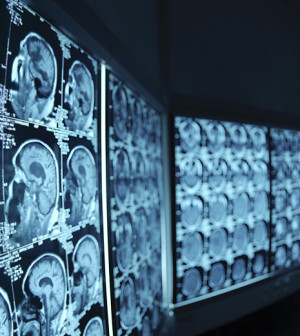- The Best Time of Day to Drink Bone Broth to Maximize Health Benefits
- 8 Ways to Increase Dopamine Naturally
- 7 Best Breads for Maintaining Stable Blood Sugar
- Gelatin vs. Collagen: Which is Best for Skin, Nails, and Joints?
- The Long-Term Effects of Daily Turmeric Supplements on Liver Health
- Could Your Grocery Store Meat Be Causing Recurring UTIs?
- Are You Making This Expensive Thermostat Error This Winter?
- Recognizing the Signs of Hypothyroidism
- 10 Strategies to Overcome Insomnia
- Could Artificial Sweeteners Be Aging the Brain Faster?
Kids With Mental Ills Often Treated Solely by Primary Care Doctors

Family doctors and pediatricians are often the sole source of a child’s mental health care, particularly for kids suffering from attention-deficit/hyperactivity disorder (ADHD).
More than one-third of U.S. kids receiving care for a mental health problem are treated by their primary care physician alone, without the involvement of a psychiatrist, psychologist or social worker, according to a new study.
And four out of 10 children with ADHD are treated by a primary care physician without any collaboration with a mental health professional.
Primary care physicians also appear more likely than psychiatrists to prescribe medications to treat kids with ADHD, according to the study published online Oct. 12 in the journal Pediatrics.
Children with ADHD usually have trouble paying attention and controlling impulsive behaviors. Depending on the child’s age, medication and/or behavior therapy are recommended ADHD treatments.
The laws of supply and demand are requiring family doctors and pediatricians to care for these children, said study senior author Dr. Jeanne Van Cleave, an assistant professor of pediatrics at Harvard Medical School in Boston.
“There just aren’t enough child psychiatrists in the United States to treat every child with a mental health condition,” Van Cleave said. “Given that, any efforts to improve the quality of mental health care for children would be wise or appropriate to focus on improvements in primary health care, since that is where a lot of that care is happening.”
About 11 percent of U.S. kids between 4 and 17 years old — an estimated 6.4 million children — have been diagnosed with ADHD, according to the U.S. Centers for Disease Control and Prevention.
But only about 8,000 child psychiatrists practice in the United States, and perhaps another 600 developmental-behavioral pediatricians, said Dr. Mark Wolraich, director of the Child Study Center at the Oklahoma University Health Sciences Center in Oklahoma City.
“There isn’t any way that all of those individuals [with ADHD] are going to be able to see a child psychiatrist,” Wolraich said.
For their study, the researchers analyzed data from the Medical Expenditure Panel Survey, an ongoing federal survey designed to assess the cost and use of health care in America. They specifically looked at children who’d visited a doctor for a mental health condition.
The investigators found that 35 percent of children saw only their family doctor or pediatrician, while another 10 percent received care from both their primary care provider and a psychiatrist, psychologist or social worker.
About 26 percent received care solely from a psychiatrist, and 15 percent received care solely from a psychologist or social worker, the findings showed.
Overall, primary care providers saw more children with ADHD than did mental health providers, caring for a solid 42 percent of kids diagnosed with the disorder. On the other hand, they saw fewer children with anxiety or other mood disorders, the researchers found.
And nearly three-quarters of ADHD children being treated by a primary care doctor were prescribed medication, compared with 61 percent of those receiving care from a psychiatrist, the study authors said.
“This finding likely reflects the fact that the American Academy of Pediatrics has urged primary care pediatricians to take an active role in the treatment of ADHD, and that clinical guidelines for pediatricians recommend that medication should be considered a first-line treatment for all youth with ADHD that are 6 years of age and older,” said Dr. Andrew Adesman, chief of developmental and behavioral pediatrics at Cohen Children’s Medical Center of New York in New Hyde Park, N.Y.
Kids also would be better served if pediatricians had regular contact with pediatric mental health experts, from whom they could receive guidance, Van Cleave suggested.
“Training is one component, but the supports around caring for children with mental health conditions also are important,” Van Cleave said. “When primary care doctors have a question, they should be able to access experts for advice.”
More information
For more on ADHD, visit the U.S. National Institutes of Health.
Source: HealthDay
Copyright © 2026 HealthDay. All rights reserved.










